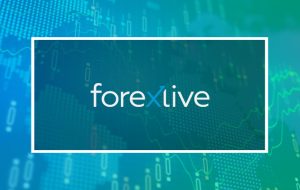Week Ahead: US and China CPI; BoC, RBNZ, BoK; ECB and Riksbank Minutes; UK Data
[ad_1] MON: Riksbank Minutes, Bank of Israel Announcement, Chinese Inflation (Jun), Norwegian CPI (Jun), Chinese New, Yuan Loans (Jun) TUE: EIA STEO WED: BoC Announcement, RBNZ Announcement, German CPI Final (Jun), UK Jobs Data (May/Jun), German ZEW Survey (Jul), US CPI (Jun) THU: ECB Minutes, BoK Announcement, OPEC MOMR, IEA OMR, EU-Japan summit, UK GDP

[ad_1]
- MON: Riksbank
Minutes, Bank of Israel Announcement, Chinese Inflation (Jun), Norwegian CPI
(Jun), Chinese New, Yuan Loans (Jun) - TUE: EIA STEO
- WED: BoC
Announcement, RBNZ Announcement, German CPI Final (Jun), UK Jobs Data
(May/Jun), German ZEW Survey (Jul), US CPI (Jun) - THU: ECB
Minutes, BoK Announcement, OPEC MOMR, IEA OMR, EU-Japan summit, UK GDP (May),
US PPI final Demand (Jun) - FRI: US
University of Michigan Prelim. (Jul), German Wholesale Price
NOTE: Previews are listed in day-order
Riksbank Minutes (Mon):
June’s meeting saw a 25bp hike as expected and
guidance for further tightening ahead alongside a step up in the pace of bond
sales. All measures which were more or less expected heading in. From this, the
minutes will be scrutinised for just how much further tightening is likely,
with the statement stating “at least one more hike this year”. Additionally, it
will be interesting to see if any member(s) would have preferred another 50bp
increment. The increased pace of bond sales to SEK 5bln from 3.5bln was shy of
SEB’s 6-7bln forecast, and as such any discussion around alternative magnitudes
will be closely monitored. Most interestingly, though not designed for monetary
policy purposes, details on the Riksbank announcing it is considering hedging
some of its FX reserves are keenly sought. Given that details are currently
light, particularly on the monetary/SEK implications; though, desks are viewing
it as a balance-sheet-related measure, not a behind-the-scenes way of
influencing inflation and/or the SEK.
China Inflation (Mon):
There are currently no expectations for the
June inflation metrics. In terms of last month’s print, annual inflation rose
slightly to 0.2% in May 2023, falling short of the 0.3% market forecast, albeit
rising from April’s 26-month low of 0.1%. Increased costs for fruit and cooking
oil helped push up food inflation, while transport and housing costs dropped.
Core consumer prices rose 0.6% year-on-year. Consumer prices saw a 0.2% monthly
drop, marking a fourth consecutive m/m decrease. Using the Caixin PMIs as a
proxy, the release suggested “Average input prices fell for the first time in
just over three years, albeit fractionally, which in turn was driven by a drop
in manufacturing costs. Output charges fell slightly and for the third month in
a row”, although the Senior Economist at Caixin also suggested, “A slew of
recent economic data suggests that China’s recovery has yet to find a stable
footing.” Analysts at ING suggest “Weak domestic demand is the main culprit,
though there are also some helpful base effects and we should see inflation
return to around a 2% rate over the coming months. PPI inflation will remain
strongly negative, reflecting weak factory gate prices as well as subdued
commodity prices.”
Norway CPI (Mon):
In May, the core YY figure printed markedly
above forecast at 6.7% (exp. 6.2%, and the Norges Bank’s expected 6.01%) and
was a key driver behind the Norges Bank’s decision to hike by 50bp in June. In
terms of the forecasts from that meeting, the Bank significantly upgraded the
June view to 6.58% (prev. 6.01%) for CPI-ATE. As it stands, the Norges Bank’s
guidance is for another hike “most likely” occurring in August, with the rate
seen increasing to 4.21% by end-2023. In the scenario that CPI-ATE remains
around the May figure, i.e. above the new June forecast, this week then it may
well serve to cement expectations for a hike in August and make another 50bp
move a real possibility.
UK Jobs Data (Tue):
The ex-bonus average earnings (May) print is
expected to moderate slightly from 7.2% to 7.1%, while the Unemployment rate
(May) is seen remaining at 3.8%. While the employment metrics will draw focus,
and have influence for GDP ahead along with BoE expectations, the main focal
point of the release will be wages, particularly after the particularly firm
data in June for the April period. Reminder, that release showed the largest
growth rate for regular pay outside of the COVID period, and (when Gilts
opened) sparked a marked hawkish reaction. For May, the associated CPI and PMI
prints have had hawkish implications; in particular, the May Services PMI
highlighted “Intense wage pressures continued across the service economy,
despite a moderation in employment growth.”, with the latter remark also of
note for the accompanying unemployment metrics. For the BoE, the data is
another piece in the puzzle before the August 3rd meeting where the wage
figures and the June CPI (due July 19th) will be key in determining whether
another 50bp is delivered or if a return to 25bp is justified.
RBNZ Policy Announcement (Wed):
The RBNZ is likely to keep the Official Cash
Rate unchanged at next week’s meeting at the current 5.50% level, with money
markets pricing in a 92% probability that the central bank holds rates and just
an 8% chance of a 25bps hike. As a reminder, the RBNZ unsurprisingly hiked
rates by 25bps at the last meeting in May which was made by a majority of five
votes to two and was the first time the Monetary Policy Committee voted on the
decision. The announcement was seen as a dovish hike as the central bank
maintained its peak rate forecast at 5.50%, and therefore implied that its
hiking cycle is done, while it also omitted prior language regarding further
rate increases and stated that the OCR is set to remain restrictive for the
foreseeable future. The central bank also noted that the level of interest
rates is constraining spending and inflation, while inflation is expected to
continue declining from the peak and it forecast negative GDP growth for Q2 and
Q3. Since that meeting, Governor Orr stated that rates are restrictive and well
above neutral, as well as noting that economic growth and inflation are weaker
than expected, while Assistant Governor Silk suggested being mindful of
over-tightening monetary policy and that they can halt to see how things go.
Furthermore, the latest GDP data showed that the economy dipped into a
recession with Q2 GDP Q/Q at -0.1% vs. Exp. -0.1% (Prev. -0.6%, Rev. -0.7%)
which further reduces the prospects of a rate hike.
US CPI (Wed):
Consumer prices are seen rising +0.2% M/M in
June (prev. 0.1% M/M), while the annual measure is expected to pare back to
3.0% Y/Y from 4.0% in May. Core consumer prices are expected to rise 0.3% M/M
(prev. 0.4% M/M), while the annual measure of core inflation is expected to
slip to 5.0% Y/Y from 5.3% in May. Credit Suisse says the easing core inflation
would be welcome for the Fed since it has been stuck around a monthly rate of
0.4% this year. The bank notes that the volatile used auto prices component is
are expected to decline after a period of strong increases, while other goods
categories are likely to have minimal inflation. Meanwhile, on the services
inflation front, CS says that services inflation including shelter is expected
to continue declining, with hotel prices weighing; ex-shelter, the bank
predicts that services inflation will be slightly below 0.3%. CS is slightly
below consensus in looking for core inflation to rise 0.2% M/M; it says that a
reading in-line with its estimates would represent the lowest run rate for core
inflation in 22 months, and the first time core inflation has been broadly
in-line with target over that period. It adds that the decline is likely to be
exacerbated by volatile components, which could reverse higher later in the
year, but nonetheless, this would be encouraging for the Fed after months of
disappointment.
BoC Policy Announcement (Wed):
After a five month ‘pause’, the consensus
looks for the Bank of Canada to lift interest rates by 25bps for the second
straight meeting in July, takings it key rate to 5.00%, according to Reuters.
Recent inflation data showed a significant declin in price pressures, with the
annual rate diving to 3.4% Y/Y from 4.4%, though some analysts suggested that
it might be a result of base effect. The BoC itself does not see inflation
returning to its 2% target until early 2025. “The slowdown may not be enough to
remove another BoC rate hike from the table given stickier core rates of
inflation, while a decent GDP report coupled with a tight job market suggests
the economy remains sturdy,” BMO Capital Markets said. Analysts at another
Canadian bank, RBC, said that data is pointing to more persistent momentum in
consumer spending as well as labour demand, and the question is when are we going
to be able to see a material slowdown in labour market conditions as well as
the economic outlook; “in our heads, it is really a question of when, not so
much whether it is going to happen,” RBC adds. The Reuters poll also finds that
analysts are more split on the prospects of a recession, and ahead, analysts
think that after the July hike, the BoC will likely keep rates unchanged well
into 2024.
ECB Minutes (Thu):
The ECB Minutes will be closely watched for
any signs of a potential September hike, with a July hike wholly expected by
markets, as pricing currently infers an 88% chance of a 25bps hike and 12% for
a 50bps move. To recap the June meeting, the ECB delivered another 25bps hike
to the Deposit Rate, taking it to 3.5%. The decision to raise rates was once
again premised on the judgement that inflation “is projected to remain too high
for too long”. Going forward, policy decisions will continue to follow a
data-dependent approach and be taken on a meeting-by-meeting basis. Perhaps the
main takeaway from the initial announcement came via the accompanying macro
projections which saw upgrades to headline and core inflation for 2023 through
2025 with the core 2025 print expected above-target at 2.3%. From a growth
perspective, 2023 and 2024 forecasts were revised lower by 10bps. Elsewhere,
the GC confirmed that it will discontinue reinvestments under the asset
purchase programme as of July 2023. At the follow-up press conference, when
questioned on whether the GC expects to keep raising rates, Lagarde replied
that there was still “more ground to cover” and that the ECB is not done on
hikes. Note, Lagarde again refused to comment on where she saw the terminal
rate. Since the June meeting, Bloomberg sources suggested the ECB is set for a
“tough debate” next month over whether a possible September rate hike is
needed. Meanwhile, at the ECB Sintra Forum (26-28th June), GC members largely
kept the door open for a September hike, whilst refraining from telegraphing a
terminal rate and keeping a data-dependent approach. On that front, EZ CPI for
June was mixed vs expectations, with the core Y/Y rate narrowly topping
forecasts (6.8% vs 6.7%), although headline and super-core both printed 0.1ppts
under expectations.
BoK Policy Announcement (Thu):
The Bank of Korea is likely to maintain its
7-Day Repo Rate at the current level of 3.50% for the 4th consecutive meeting
next week as softening inflation and expectations of weak economic growth
reduce the urgency for the central bank to resume its hiking cycle. The BoK Board
was unanimous in its decision to keep rates unchanged at the last meeting in
May, although prospects of a future rate increase cannot be ruled out as six of
the seven members saw the need to keep the door open for one more rate hike,
while the accompanying statement noted that economic growth is to remain weak
for some time and inflation will likely fall considerably before rebounding
slightly for the rest of the year. Governor Rhee also stated that core
inflation is not easing as much as Board members had expected and uncertainty
increased over whether inflation will approach the 2% target before year-end,
while a senior official pushed back against the view that monetary tightening
is over and warned it is still too early to be relaxed over inflation. Nonetheless,
an immediate policy adjustment is seen as unlikely given that inflation
continued to soften in June with South Korean CPI YY at 2.7% vs. Exp. 2.9%
(Prev. 3.3%), albeit remaining above the central bank’s target.
EU-Japan Summit (Thu):
The upcoming NATO summit on July 11th and 12th
is expected to see a push by US President Biden to secure Sweden’s membership
in the alliance, amid Turkey’s ongoing objections. Biden met with Swedish Prime
Minister Kristersson and expressed support for its NATO bid, despite the
country’s entry being hindered by mainly Turkey. The summit also coincides with
a host of diplomatic events for Biden, including a visit to the UK and a
stopover in Finland, the alliance’s newest member. The discussions will likely
centre on NATO’s expansion, transatlantic coordination on key global issues,
and efforts to support Ukraine against Russia’s invasion. The summit is not
expected to see Sweden’s membership secured yet. Sticking with geopolitics,
Japan and the EU are planning to issue a joint statement declaring an increase
in their maritime, cyberspace, and supply chain security cooperation. The
decision will likely follow a summit scheduled for July 13 involving Japan’s PM
Kishida, European Council President Michel and European Commission President
von der Leyen. The statement may include a commitment to enhancing joint
activities in the Indo-Pacific region and strengthening Southeast Asian
countries’ maritime defences. This move comes as tensions rise in the region,
particularly concerning China’s growing influence and activities in the East
and South China seas, according to Kyodo.
UK GDP (Thu):
April’s data showed 0.2% MM growth, but failed
to entirely reverse the 0.3% contraction in March. At the time of this release,
Pantheon wrote that it expects to see GDP over Q2 to be relatively unchanged
QQ, a view that can be explained via soft consumer confidence generally and
also the additional Coronation Bank Holiday. However, the May PMI reported that
its “surveys are consistent with GDP rising 0.4% in Q2 after 0.1% in Q1” and
continuing the theme of PMIs implying a stronger economic performance than the
hard data shows. Further out and of concern on the growth outlook, the June PMI
indicated that the economy lost momentum again after the brief spring uptick
and “looks set to weaken further in the months ahead”, with emphasis placed on
signs of faltering around services. For the BoE, the findings are noteworthy,
but the MPC remains committed to breaking inflation’s persistence and thus the GDP
metrics are unlikely to change their focus. Though, it may have an influence on
market pricing which currently implies a 6.5% peak by February 2024.
For more research like this check out
Newsquawk’s live
squawk box for 7 days free.
[ad_2]
لینک منبع : هوشمند نیوز
 آموزش مجازی مدیریت عالی حرفه ای کسب و کار Post DBA آموزش مجازی مدیریت عالی حرفه ای کسب و کار Post DBA+ مدرک معتبر قابل ترجمه رسمی با مهر دادگستری و وزارت امور خارجه |  آموزش مجازی مدیریت عالی و حرفه ای کسب و کار DBA آموزش مجازی مدیریت عالی و حرفه ای کسب و کار DBA+ مدرک معتبر قابل ترجمه رسمی با مهر دادگستری و وزارت امور خارجه |  آموزش مجازی مدیریت کسب و کار MBA آموزش مجازی مدیریت کسب و کار MBA+ مدرک معتبر قابل ترجمه رسمی با مهر دادگستری و وزارت امور خارجه |
 مدیریت حرفه ای کافی شاپ |  حقوقدان خبره |  سرآشپز حرفه ای |
 آموزش مجازی تعمیرات موبایل آموزش مجازی تعمیرات موبایل |  آموزش مجازی ICDL مهارت های رایانه کار درجه یک و دو |  آموزش مجازی کارشناس معاملات املاک_ مشاور املاک آموزش مجازی کارشناس معاملات املاک_ مشاور املاک |
- نظرات ارسال شده توسط شما، پس از تایید توسط مدیران سایت منتشر خواهد شد.
- نظراتی که حاوی تهمت یا افترا باشد منتشر نخواهد شد.
- نظراتی که به غیر از زبان فارسی یا غیر مرتبط با خبر باشد منتشر نخواهد شد.




ارسال نظر شما
مجموع نظرات : 0 در انتظار بررسی : 0 انتشار یافته : 0